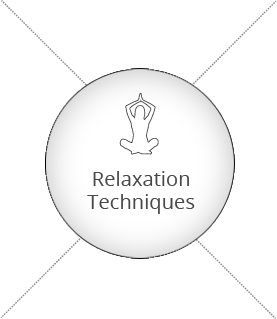Visualization, Relaxation Techniques, Meditation and Hypnosis

In the past forty years a tremendous amount of research has advanced the understanding of the brain and its functions, particularly as it relates to thinking, feeling and acting. Now we know for sure, a scientific fact, that if we learn relaxation techniques and meditation we can control and change the function of the involuntary systems in the organism; we can achieve a better control of aspects of our functioning that up to that point have been unconscious, such as overeating, or surrendering to the abuse of substances, be it coffee, sugar, chocolate, alcohol, or any other addicting substance.
In the same vein, Olympic athletes and world class musicians have used visualization techniques in conjunction with relaxation techniques to decrease performance anxiety, improve skills, and maximize performance. These techniques are related to the field of hypnosis, which means, literally, to be “put to sleep,” which is incorrect; in hypnosis people continue to be perfectly aware of their surroundings, loose no self-control – contrary to what some people believe – and one doesn’t fall, unwillingly, under the influence of another person, called the hypnotist. In really, every state of hypnosis is actually self-hypnosis; you cannot be hypnotized unless you want to enter into a state of trance. Once in that state, you can integrate suggestions to change your behavior, or work through difficult emotional experiences.
Integrative Life Treatment Modalities

Medicine

Nutrition


Performance

Function
Coaching


Techniques

and Hypnosis

Natural
Remedies

Medicine

Flower
Essences











